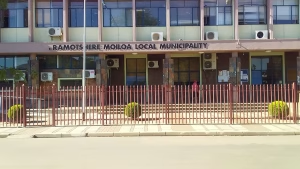
Gamjai
A recent study by North-West University has exposed a disturbing reality — traces of life-saving HIV medication, known as ARVs, have been found in South Africa’s rivers, dams, and even some treated tap water.
Published on July 13, 2025, this research raises serious concerns about what’s quietly flowing through our water systems — and what it could mean for people, animals, and the environment.
What’s in the Water?
The study looked at 72 water sources across Gauteng and parts of North West. Using advanced lab techniques, researchers found noticeable amounts of ARV drugs like:
- Efavirenz
- Lopinavir
- Nevirapine
- Zidovudine
These drugs were detected after the water had passed through wastewater treatment plants. That’s the scary part — these plants aren’t designed to remove pharmaceutical drugs, so what goes in, often comes out.
Why Is This Happening?
South Africa has the largest HIV treatment program in the world, helping millions of people stay healthy with ARVs. But here’s the catch: a lot of these drugs aren’t fully broken down in the body. In fact, up to 90% of the medication can leave the body in urine or waste and end up in sewage systems — eventually landing in rivers, dams, and even drinking water.
Is It Dangerous?
While the ARV levels in drinking water are low, some exceed international safety thresholds. Researchers say:
- Humans might be exposed by eating fish or other water-based foods.
- Untreated HIV-positive individuals could develop drug resistance.
- The natural balance of rivers and dams is being thrown off — leading to things like bacterial overgrowth.
For example, the study found freshwater snails had abnormal embryo development, and essential bacteria in water systems were affected.
What Needs to Happen Now?
The researchers are calling for urgent action. They want:
- Wastewater plants upgraded to better filter out pharmaceutical drugs
- New laws and guidelines for managing drug pollution
- More research into the long-term health risks for both people and ecosystems
A Hidden Threat We Can’t Ignore
This study is a wake-up call. South Africa has done incredible work fighting HIV, but now we’re seeing one of the unintended side effects — drug pollution in our water.
As we keep pushing for public health, we also need to protect the environment and rethink how we manage the full journey of medication — from pharmacy to toilet to tap.






